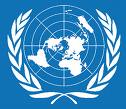21 Nations United Nations Resolution against the US for Spying on World Leaders

UN member states are “deeply concerned at human rights violations and abuses that may result from the conduct of extra-territorial surveillance or interception of communications in foreign jurisdictions,” according to the draft.
“Emphasizing that illegal surveillance of private communications and the indiscriminate interception of personal data of citizens constitutes a highly intrusive act that violates the rights to freedom of expression and privacy and threatens the foundations of a democratic society.”
The global outrage over US government surveillance further spiked after The Guardian — citing a confidential memo obtained from American whistleblower Edward Snowden – revealed that the NSA is illegally eavesdropping on phone conversations of 35 world leaders.
Close American allies like France, Germany and Mexico, as well as rivals like Cuba and Venezuela, are all targets of massive US surveillance, according to the document.
German newspaper Der Spiegel said German chancellor Angela Merkel’s mobile phone had been listed by the agency’s Special Collection Service (SCS) since 2002 and her number was still on a surveillance list in June 2013.
The German foreign ministry said the UN resolution would be about the protection of privacy in electronic communication.
“It is very general, but we think this is a very important topic, that’s why we are drafting it. It is still at a very early stage, so we don’t know when it will be presented or if other countries will join,” a German foreign ministry spokesman said.
On Friday, European leaders expressed “deep concerns” about the NSA’s widespread spying on world leaders.
“A lack of trust could prejudice the necessary cooperation in the field,” the leaders warned in a statement.
On Thursday, White House spokesman Jay Carney acknowledged that Washington’s alliances around the world have taken a hit from the revelations about the NSA programs.
“The revelations have clearly caused tension in our relationships with some countries, and we are dealing with that through diplomatic channels,” Carney said.
“These are very important relations both economically and for our security, and we will work to maintain the closest possible ties,” he added.
On Friday, the State Department announced that the US initiated a review of its surveillance programs in order to “balance security needs with privacy concerns.”
However, individuals in the intelligence and defense community are concerned that the NSA’s spying activities have proven too damaging.
“This is an example of the very worst aspects of the Snowden disclosures,” a former defense official with deep experience in NATO told The Foreign Policy. “It will be very difficult for the US to dig out of this, although we will over time. The short term costs in credibility and trust are enormous.”
The UN resolution is expected to be presented in front of the United Nations General Assembly human rights committee before the end of the year.

